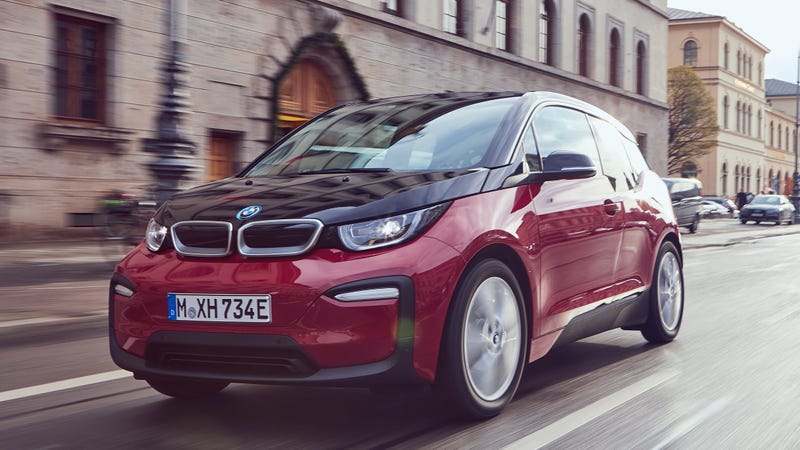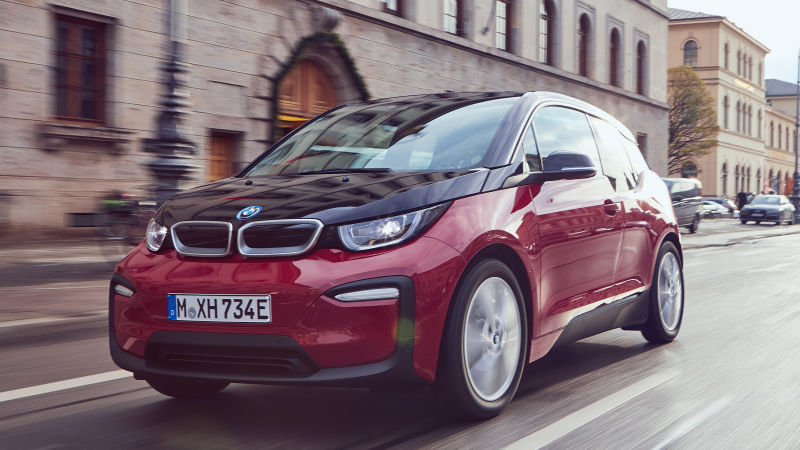
The BMW i3 probably should’ve been a Mini all along, but it wasn’t. And while sales were at first tepid after its 2013 launch, they’ve picked up in recent years to a surprising degree. The i3 might eventually die, but it will still be sold for several years, a BMW executive told the Financial Times, though the company has no plans to update it.
BMW has sold over 150,000 i3s since its debut, mostly in Europe, with sales increasing 30 percent in August compared to that month last year. It’s a car that started out as a test mule for BMW’s electric ambitions and has become a mainstay. The car is adorably unique compared to the rest of BMW’s lineup, and it seems like it’ll stay like that, with no plans for a successor the i3, according to Pieter Nota, BMW’s sales and marketing chief.
Instead, BMW will double down on efforts to expand electrification across its lineup.
Per the FT:
BMW is installing plug-in hybrid technology into its best-selling models, which allows them to drive using electric power in cities and conventionally on longer journeys.
The carmaker also plans 13 battery-only models by 2023, a timeframe that was recently brought forward because of impending emissions targets.
Advertisement
The i3 was never a big risk for BMW, mostly a brushing up on EV tech before the big push. Which means that the positive sales numbers are pretty much gravy. It makes sense to keep making the i3 as long as people keep buying them.
Carmakers typically renew their models after seven years of sales to revitalise demand and fit the latest technology, so under normal conditions the i3 would have only a year left to run.
However, the company said it would continue selling it for several more years.
“It’s not a normal car in that sense,” Mr Nota said.
The i3 isn’t a normal car for sure, and the world is a happier place with it still around. And while BMW may be playing it safe with electric cars, the i3 always felt like a good departure from that. Will the i3 still be with us in a decade, completely unchanged? We can only dream.













